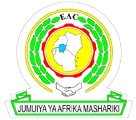Non-Tariff Measure
- NTM classification
- B7: Product quality, safety or performance requirements
- Date when the measure came into force
- 09 September 2004
- Publication where the measure is specified
- Government Notice R. 790 (Government Gazette 26530) Of 9 July 2004
- Regulation where the measure is specified
- Compulsory Specification For The Manufacture, Production, Processing And Treatment Of Canned Fish, Canned Marine Molluscs And Canned Crustaceans
- Country/Region applying the measure
- South Africa
- The rationale of the measure
- This specification covers the manufacture, production, processing, and treatment of canned fish, canned fish products, canned marine molluscs, canned marine mollusc products, canned crustaceans and canned crustacean products.
- Coded list of objectives
- X: For purposes n.e.s.
- Description of the measure
- 7.3.3 Shrimps, prawns and langoustines
7.3.3.1 General preparation and presentation
Canned shrimps, prawns and langoustines shall be prepared from edible species of the families designated in 10.3.5(g)(h)(j) from which heads, shell and antennae have been removed. The name of the product shall optionally be "shrimp", "shrimps" or "prawns" or where applicable "langoustines". (Both "shrimps" and "prawns" shall hereafter be denoted in the term "shrimp").
Canned shrimp may be presented as follows:
a) Peeled: Shrimp that have been headed and the shell and tail fin removed but without removal of the dorsal tracts;
b) Peeled and de-veined or cleaned: Peeled shrimp that the back have been cut open and the dorsal tract removed at least to the last segment of the tail.
c) Cocktail (picnic): Mixture of peeled shrimp sizes that when determined in accordance with 11.8(ii) does not contain more than a mass fraction of 15 % broken shrimp in a container.
d) Salad: Mixture of peeled shrimp sizes that when determined in accordance with 11.8(ii) does not contain more than a mass fraction of 50 % broken shrimp in a container.
e) Broken: Pieces of peeled shrimp consisting of less than four segments. This may also denote product containing more than the percentage of broken shrimp permitted in the above categories.
7.3.3.2 Size designation of shrimp
Canned shrimp may be designated by size in accordance with (a) the actual count range adherent on the label, or (b) as per provisions stated below.
The terms "extra large", ''jumbo", "large", "medium", "small", "tiny" may be used provided that the range is in accordance with table 1. The number of whole shrimp (including pieces greater than 4 segments) per 100 g of drained product are indicated in table 1.
7.3.3.4 Absence of particular defects
a) Criteria for broken shrimp:
When examined in accordance with 11.8, the presence of broken shrimp shall not exceed the criteria in tables 2 and 3.
b) Criteria for broken langoustines:
When examined in accordance with 11.8, langoustines shall contain...not more than a mass fraction of 5 % of broken units.
c) Cleaned or deveined:
When examined in accordance with 11.8, not more than a mass fraction of 5 % improperly deveined or cleaned units shall be present in a product labelled as "deveined or "cleaned.
d) Discolouration:
Except for sulphide staining (blackening) and when determined in accordance with 11.8, not more than a mass fraction of 15 % of the units shall be affected by distinct discolouration of more than 10 % of the surface area of the individual shrimp or with faded pigment or liver stain.
Black stained units due to sulphide staining developed on the inside surfaces of containers shall not be present - Reference of the measure
- Regulation 7.3.3
- Measure also domestic
- Yes
Products affected by the measure.
| Code | Product | Partial coverage | Partial coverage indication | Date in | Date out |
|---|
| 1605.2 | - Shrimps and prawns : | Yes | Canned | | |
| 1605.40 | - Other crustaceans | Yes | canned langoustines | | |
- Description
- Shrimps, prawns and langoustines
Countries/Regions affected by the measure.
| Inclusion/Exclusion | Country | Date in | Date out |
|---|
| Inclusion | Entire world | | |
- Description
- All countries
{"transfer_retrieve_error":"Transferred complaint details could not be retrieved.","translate_error":"Text could not be translated"}
https://tradebarriers.org/img/flag_icons



 English
English Français
Français
